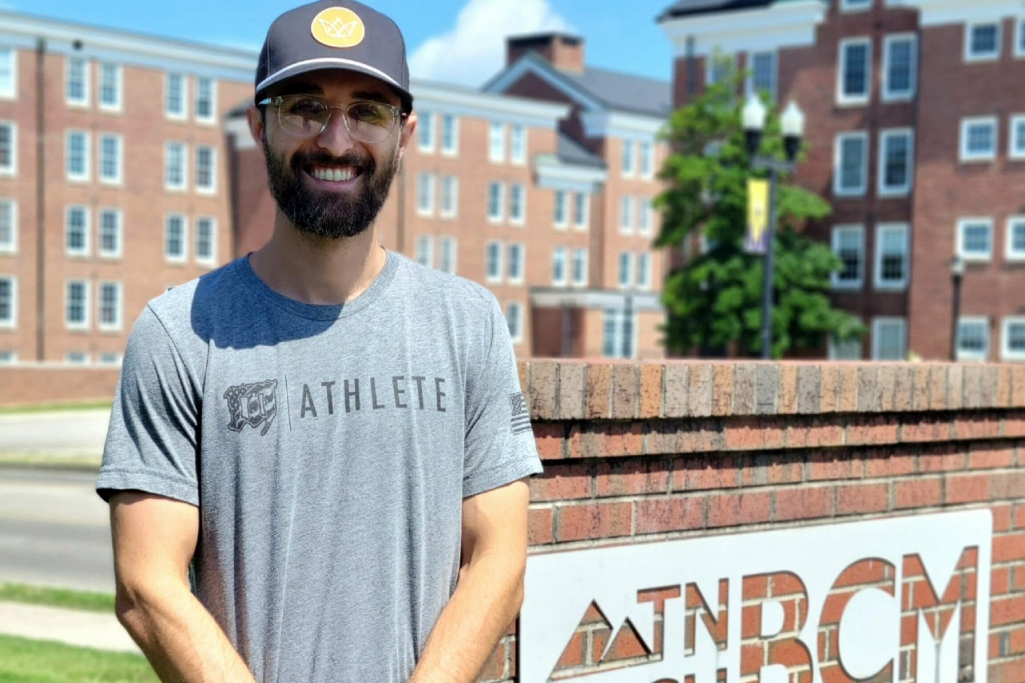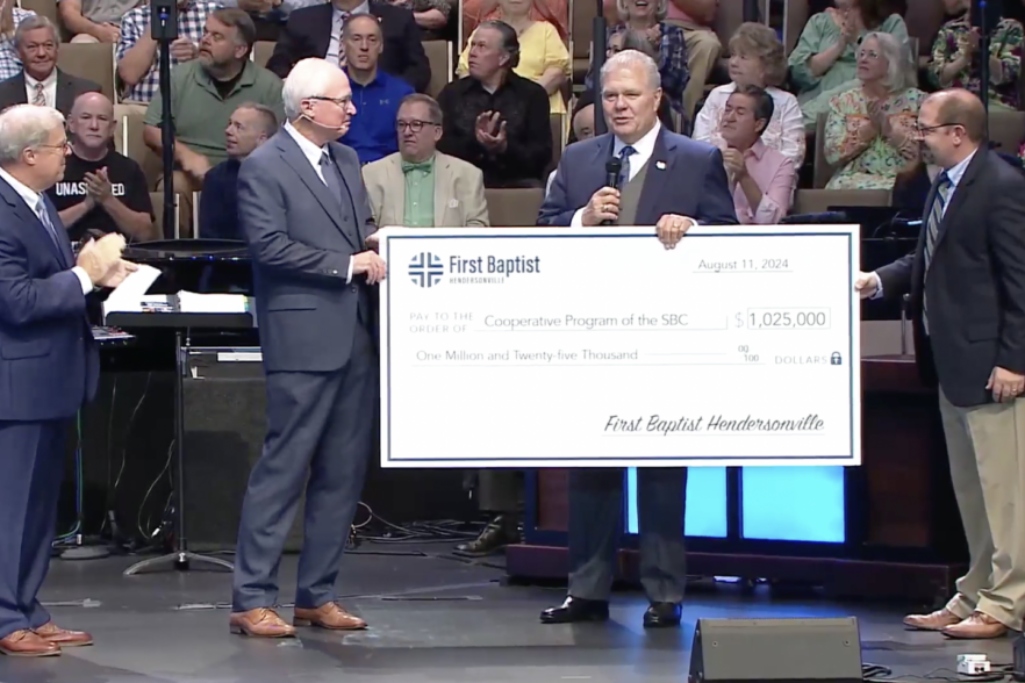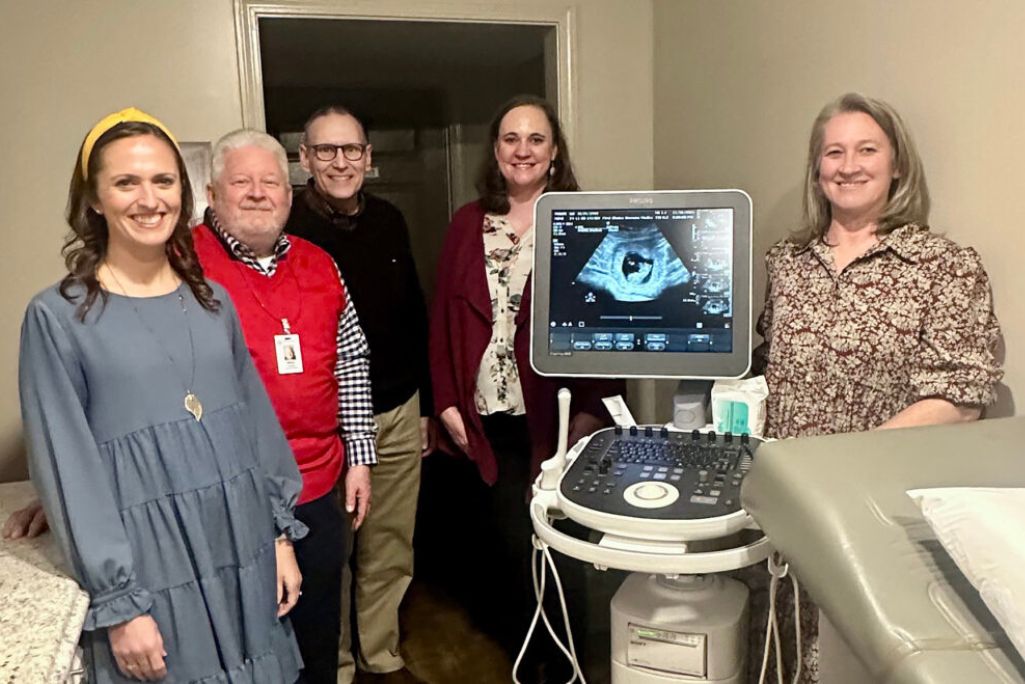
Jesse Haywood is pastor of a new church plant that meets in the BCM building at Tennessee Tech University.
COOKEVILLE, Tenn. — Three years ago, during a regular meeting at Stevens Street Baptist Church in Cookeville, Pastor Scott Parkinson tapped Jesse Haywood on the shoulder and asked, “Hey, do you want to plant a church?”
It was a joke — with a twinge of sincerity.
“But I just could not shake that thought,” Haywood said.
Previously, Haywood had served as a youth minister in Louisville, Ky., where he attended seminary. He had also started preaching occasionally on Sundays at Stevens Street.
“I think where it started was with Pastor Scott seeing a gifting of preaching in me,” Haywood said. “He just explicitly asked me, ‘What’s stopping you from starting a church here?’ And I couldn’t give a good reason.”
Over two years, Haywood and several others from Stevens Street went through a discovery phase, participating in church planting cohorts, trainings and lots of questions.
Finally, at the end of March 2025, the question — the tongue-in-cheek joke — became reality.
About 70 people from Stevens Street Baptist Church agreed earlier this year to leave the comfort of the large, well-established church for new territory: a smaller, new church led by Haywood.
Today, Haywood pastors what he calls a “church transplant,” Kingdom Community Church, which meets in the Baptist Collegiate Ministry (BCM) building at Tennessee Tech.
Haywood likened the church to a plant that’s outgrown its pot.
“When you have something, and it’s getting big, and it’s filling the whole bucket, and you just take one of those plants out, and you put it in another bucket, then that can grow and fill another bucket,” he said. “So, you’re transplanting a part of that plant to another bucket so that it can grow.”
Haywood felt the call to ministry while in college at the University of Tennessee Knoxville, where he studied marketing. After marrying Halli, they moved to Louisville, where he served as a youth pastor “and where I really cut my teeth in ministry and learned a lot” for three years.
Their first child — the first of four — and their desire to be close to family brought them back to Cookeville, where Halli grew up at Stevens Street.
Running a church plant is “intimidating,” the new pastor explained.
“I think I’m the youngest pastor in Cookeville, so I feel that,” said Haywood, who’s 30. “I feel like I lack — I mean, I lacked a lot — but Christ’s power is made perfect through weakness.”
Though he’s young, “I’m just reminded of the Scripture: ‘Don’t let anyone look down on you because of your youth, but set an example,’” Haywood said. “I may not have all the experience, but I can set an example in godliness.”
Plus, church transplanting works when you have a supportive “mother church.”
“It’s just been very beneficial for me and my confidence about leading, about taking risks and stepping out in faith, knowing that I have that support behind me who is just totally with us and for us,” Haywood said.
Cracking a smile, he explained, “I kind of use that analogy of mother and daughter in a way where we are like a college student. We left home, but we’ll come back to Stevens Street and raid their pantry.”
But, he added, the new church has its own identity.
In many ways, this church plant mimics the early churches, which, often out of necessity, kept it simple. Haywood said Kingdom Community members devote themselves to the handful of things that early churches were devoted to: truth, fellowship and mission.
“That was our guidance for the whole launch. Team training was a deep dive in Acts 2:42-47,” Haywood said. “The early church was devoted to the apostles’ teaching. It says they were devoted to fellowship. So, we want to be devoted to fellowship.”
But besides resources and a pastor willing to send out a portion of his church, you also need a congregation willing to say yes.
“This is the perfect model of how we should do church planting,” said Lewis McMullen, multiplying healthy churches team leader for the Tennessee Baptist Mission Board. “Kingdom Community is a prime example of what is expressed by our team and our convention: Churches start churches.”
McMullen added that the church plant is also a great model where a pastor brought on the planter and helped develop him through a residency at the church.
“Here also is a perfect picture of the local church, association, state convention and BCM working together to establish a new congregation to reach the lost,” he said.
“Our unity has been so God-honoring. I’ve been blown away by the attitude,” Haywood said about the congregation, which remains between 80 and 100 people on a given Sunday.
However, the question remains: Doesn’t Cookeville have enough churches?
Haywood says yes and no.
“The past 10 to 12 years, Putnam County has grown by 10,000 people. And in that same time frame, Southern Baptist Church attendance has decreased by 2,000 people,” Haywood said, citing a report from the local Baptist association.
“Just because there’s a building doesn’t mean there’s a church there.”
The name Kingdom Community bears this significance.
“A lot of churches just want to build bigger buildings and fill those buildings, and that’s their goal of growing the kingdom,” Haywood explained. “But we want to be a church that multiplies churches. We want our faithfulness to be measured by our sending capacity rather than our seating capacity, as I’ve heard it said.
“We don’t want to measure our success by the amount of people that we gather. We want to measure our success by faithfulness to God’s Word.”
(EDITOR’S NOTE — This article originally appeared in the Baptist and Reflector.)


